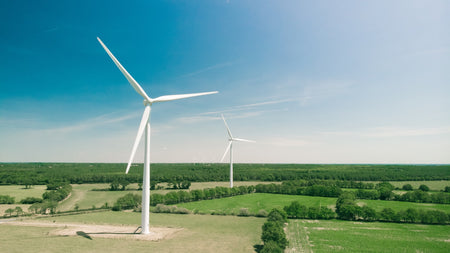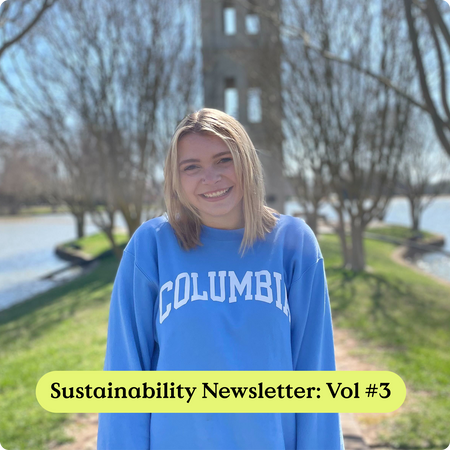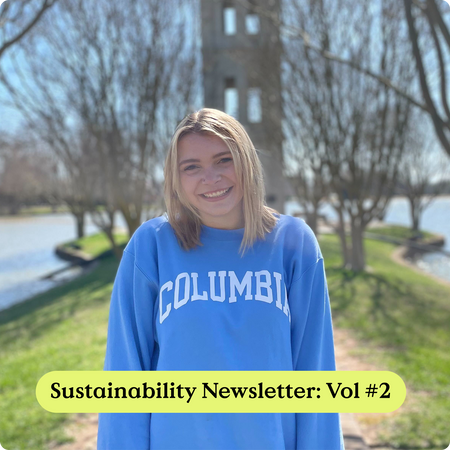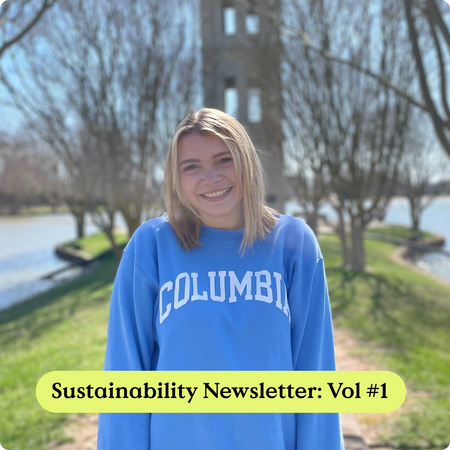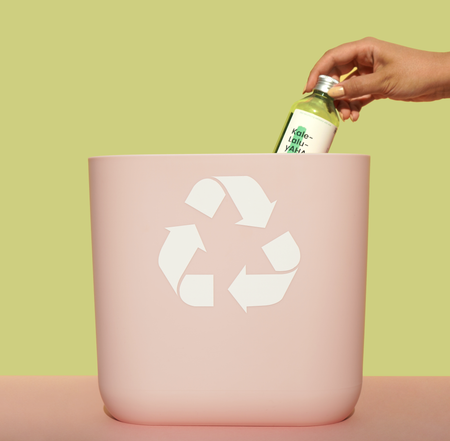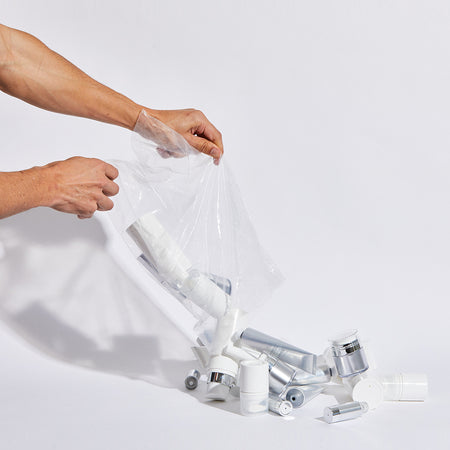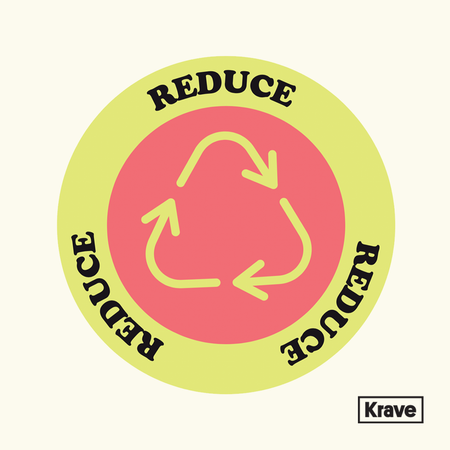Let's Bust Some Myths: Sustainability Edition

Sustainability is no doubt a hot topic these days -- and for good reason, too! It’s awesome that there has been so much talk about sustainability from consumers and companies alike.
However, with all the conservation around the topic, there’s undoubtedly been some misinformation as well. And that’s where we come in: let’s clear some things up and debunk some sustainability myths.
“Sustainability is only about taking care of the environment”
False! Most (if not all) of the literature regarding sustainability focuses on 3 things: the environment, social equity, and the economy.
Myth Busted: Of course sustainability is about taking care of the environment but it’s also about taking care of us (aka the inhabitants of this planet), and managing our relationship with the environment in a way that allows both of us to meet our needs.
“‘Clean’ and ‘natural’ beauty = ‘green’ beauty”
In general, there isn’t a consensus on what “clean” beauty really means. Typically when “clean” and “natural” beauty are explained, the definitions have more to do with avoiding certain ingredients rather than taking care of the environment or enacting sustainable business practices.
Myth busted: While clean/natural beauty and green beauty are different things, this absolutely doesn’t mean that there can’t be overlap between them. It simply means that they are not mutually exclusive, so something can be clean/natural while not being green, and vice versa.
“Sustainability is too expensive”
Not necessarily! The cost of sustainability depends on many things including the context in which you’re trying to become more sustainable.
Initially, when you’re trying to make aspects of your life more sustainable, there may be a lot of adjustments that have high costs (i.e. installing more energy-efficient appliances) but good news (!): In the long run these adjustments can also help you save money (i.e. a lower energy bill).
Myth Busted: There are lots of small changes we can all implement to help the planet that doesn’t have to cost you any more money (i.e. being more energy and water conscious, minimizing waste throughout operation chains/in our day-to-day activities).
“Eating locally will make you sustainable”
Some research does suggest that, compared to conventional food distribution, the distribution of local and regional foods requires 5-17 times less CO2. That’s great news! Something else to note, though, is that another study on food production showed that 83% of greenhouse gas emissions associated with food actually occurs during pre-distribution, (during the farming practices), meaning post-production might not make as much as a difference as we think.
BUT supporting small-scale local farmers can contribute to sustainability in other ways, such as:
- Helps to stimulate the local economy
- It has been shown that smaller, local farms are quicker to switch to more environmentally conscious farming practices (i.e. reducing pesticide use, creating buffers for wildlife, etc.)
- Compared to industrial farming, small-scale local farms don’t upset the ecological balance as much
Myth Busted: Although it can definitely differ from place to place, shopping locally shouldn’t automatically be considered a sustainable practice.
“Glass is more sustainable than plastic.”
It’s not quite so black and white! Determining the sustainability of any material requires looking at a lot of different factors. While glass is maybe more easily reusable, there isn’t always the infrastructure to properly recycle it. Glass production can also be resource-intensive, and transporting it is more difficult since it’s typically heavy.
Plastic has gotten a bad reputation for ending up in landfills or oceans and taking a long time to decompose, but it’s actually the most accessible material to both produce AND recycle. Plastic can be one of the most sustainable options when it comes to packaging. Of course, there’s so much growing research to make plastic and plastic alternatives even more sustainable.
Myth busted: When looking at the lifecycle of both materials, glass can often have a higher environmental impact than plastic due to recycling infrastructure and production emissions. It’s important to look at the entire picture when deciding which is the best option.
“Individual action and activism doesn’t matter, it’s all on corporations to make a big difference.”
Not exactly. Becoming more educated consumers and participating in grassroots activism are both good and important aspects of the fight for sustainability, but what has always been a much stronger force of change (whether positive or negative) has been the actions that authorities take.
The big policy moves (i.e. carbon tax, higher standards for fuel efficiency, stricter regulations on waste disposal, building up infrastructure for proper waste management, etc.) ultimately depend on politicians, corporations, etc. BUT this absolutely does not mean that we are helpless as consumers and voters — remember that our consumption habits and the activism that we support can still have an impact.
Myth busted: It’s not all on the individual to change the world, big policy changes will come from politicians and corporations. Instead of placing all the weight on one or the other, it’s important to recognize that both are necessary to have the biggest impact.
We hope this sheds some light on the complex world of sustainability! It’s more important than ever to stay informed on these matters, so consider this a little study guide from us to you. Have some myths that you’ve busted on your own? Drop them in the comments!
Sources:
Vogt, K.A., Patel-Weynand, T., Shelton, M., Vogt, D.J., Gordon, J.C., Mukumoto, C.T., Suntana, A.S., et al. (2010). Sustainability unpacked: food, energy and water for resilient environments and societies. Earthscan. → (Vogt et al., 2010)
Di Fabio, A. (2017). The Psychology of Sustainability and Sustainable Development for Well-Being in Organizations. Frontiers in Psychology, 8, 1-7. https://doi.org/10.3389. → (Di Fabio, 2017)
https://www.harpersbazaar.com/beauty/skin-care/a28352553/clean-beauty/ (Harper’s Bazaar, 2020)
https://www.forbes.com/sites/kaleighmoore/2019/06/11/new-ways-the-beauty-industry-is-testing--sustainable-practices/#3ddcd0eceb55 (Forbes, 2020)
https://www.scientificamerican.com/article/top-10-myths-about-sustainability/ (Scientific American, 2009)
https://www.envirocitizen.org/resources/eco-friendly-terms/ (EnviroCitizen)
https://newsroom.ucla.edu/stories/ucla-faculty-voice-nine-environmental-myths-everyone-needs-to-unlearn (UCLA Newsroom, 2015)
https://www.overshootday.org/kids-and-teachers-corner/what-is-an-ecological-footprint/ (Earth Overshoot Day)
https://www.britannica.com/science/carrying-capacity (Britannica)
https://www.footprintnetwork.org/our-work/ecological-footprint/ (Footprint Network)
https://www.fueleconomy.gov/feg/maintain.jsp (US Dept of energy)
https://insights.som.yale.edu/insights/can-we-afford-sustainability (Yale Insights, 2010)






